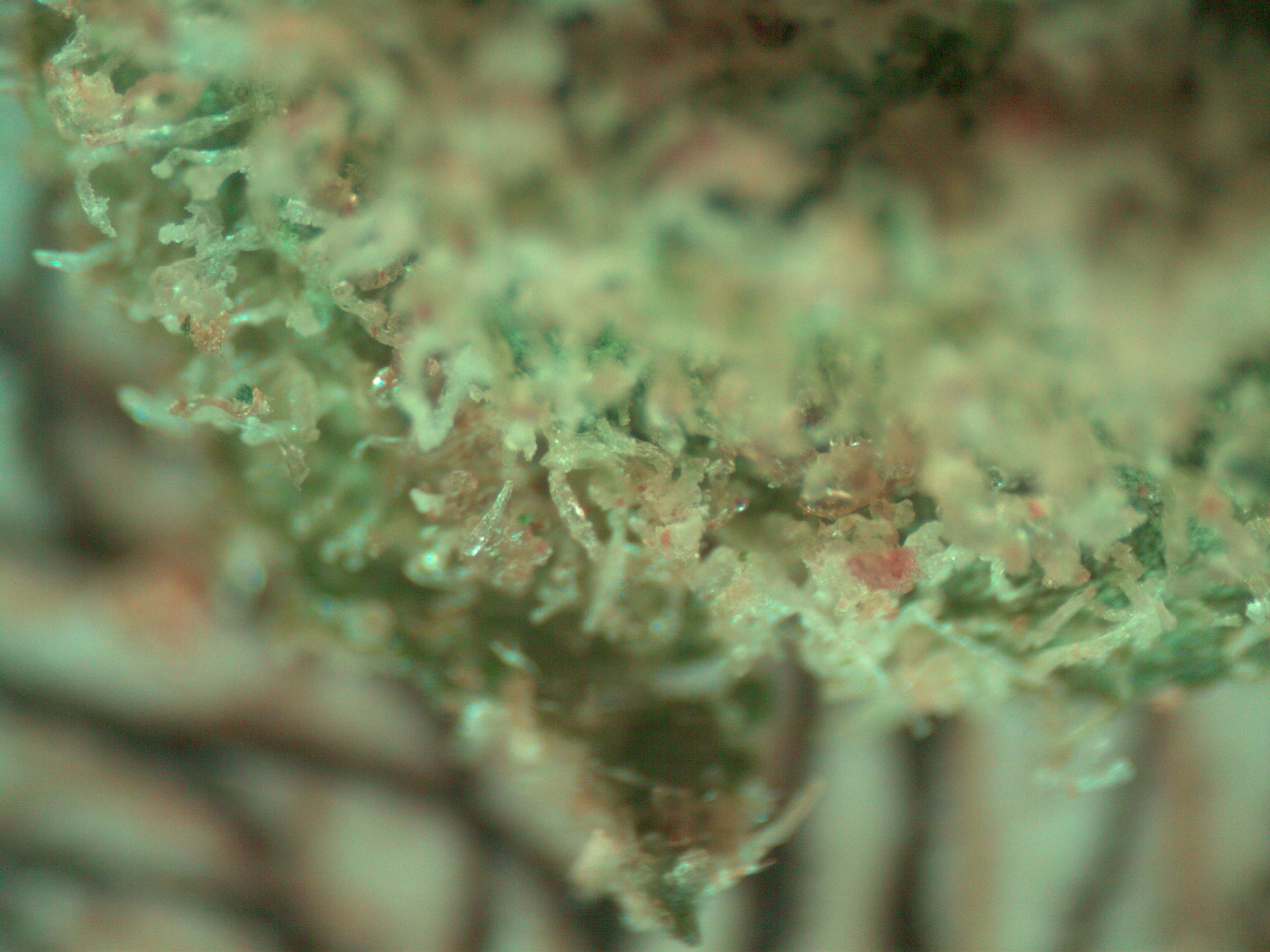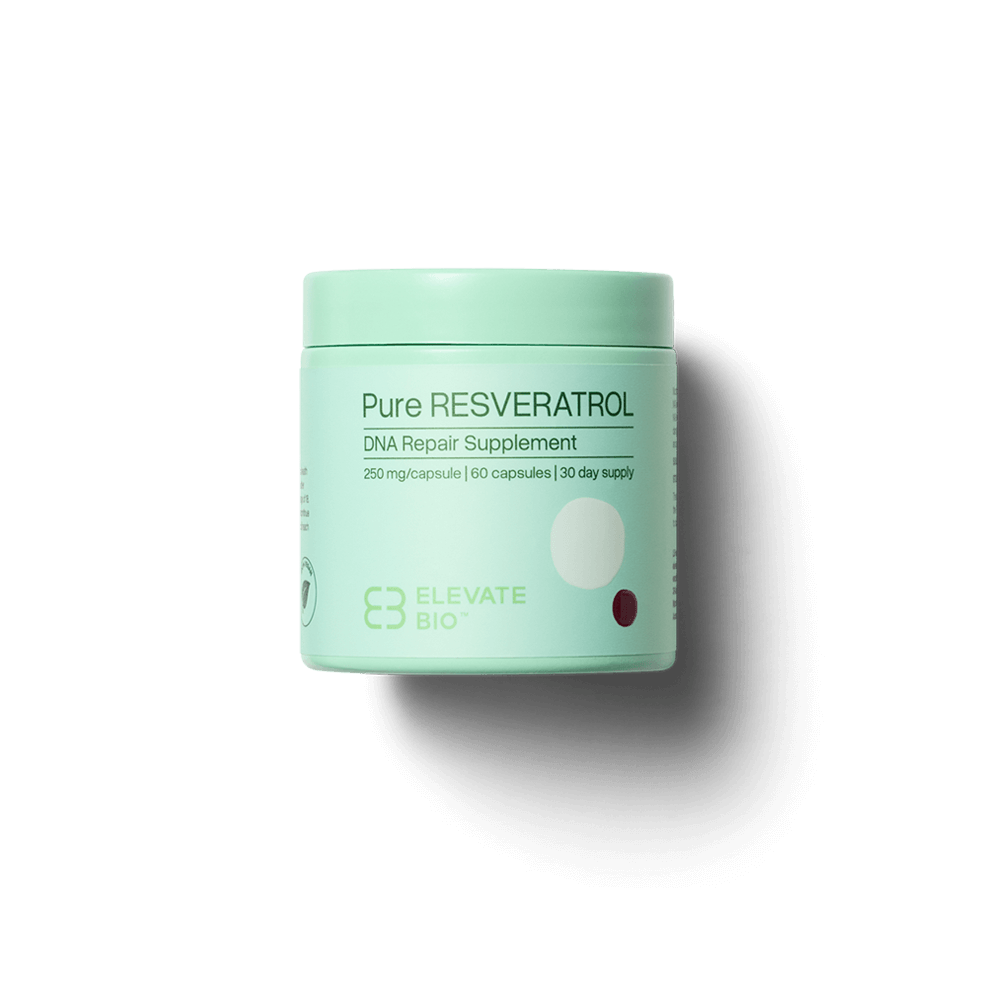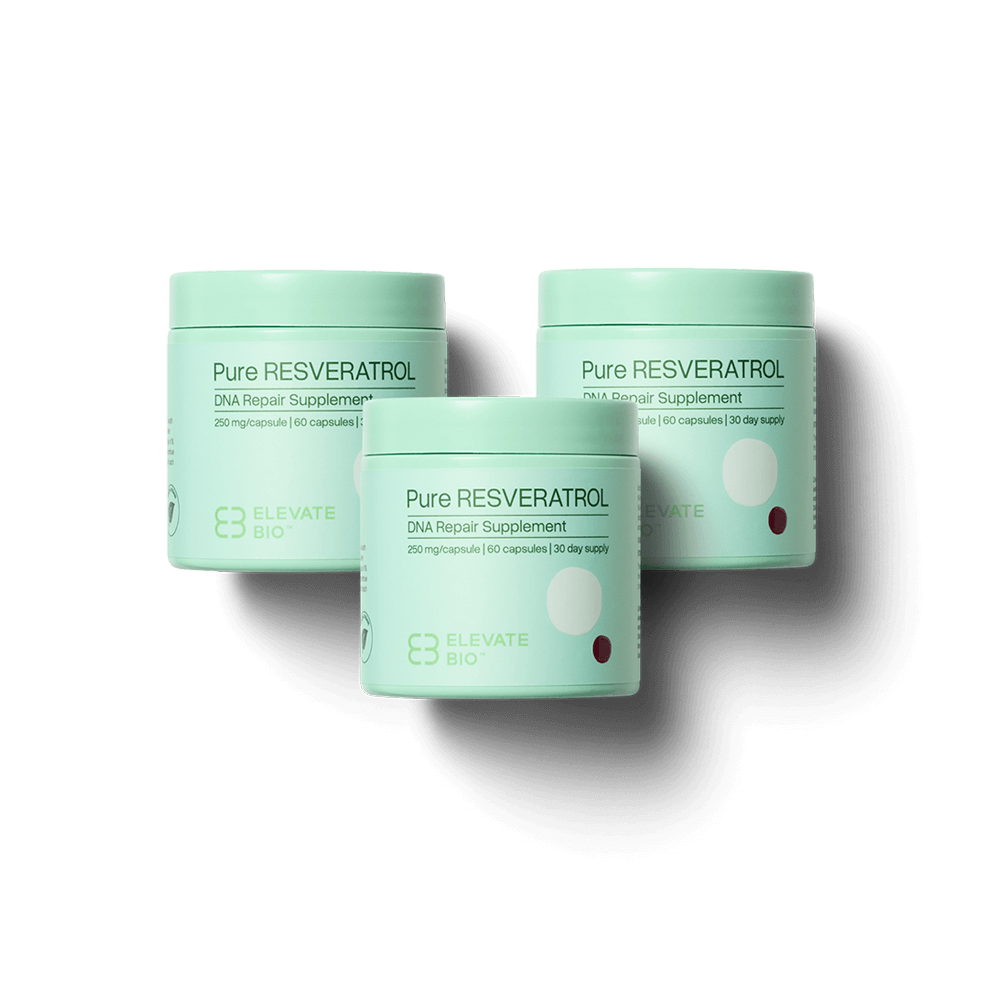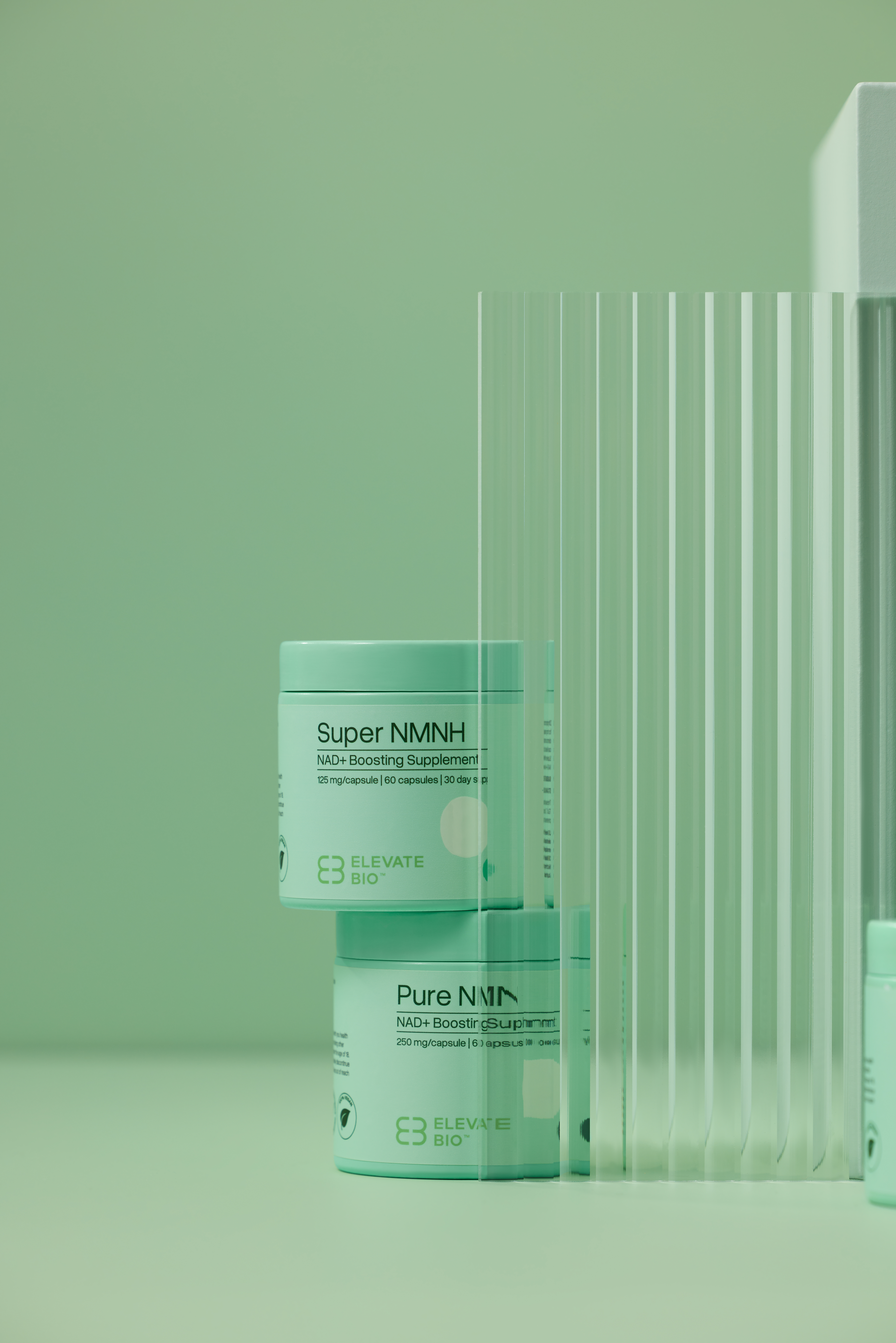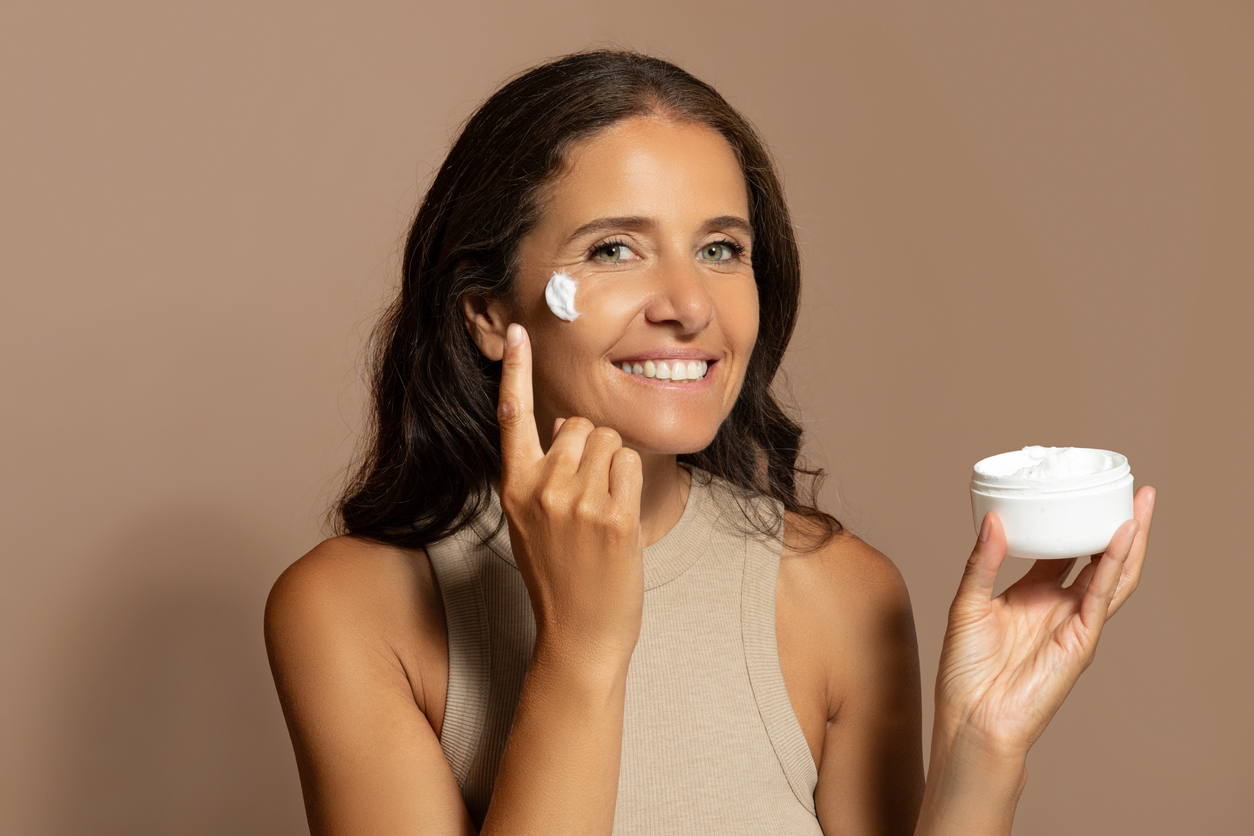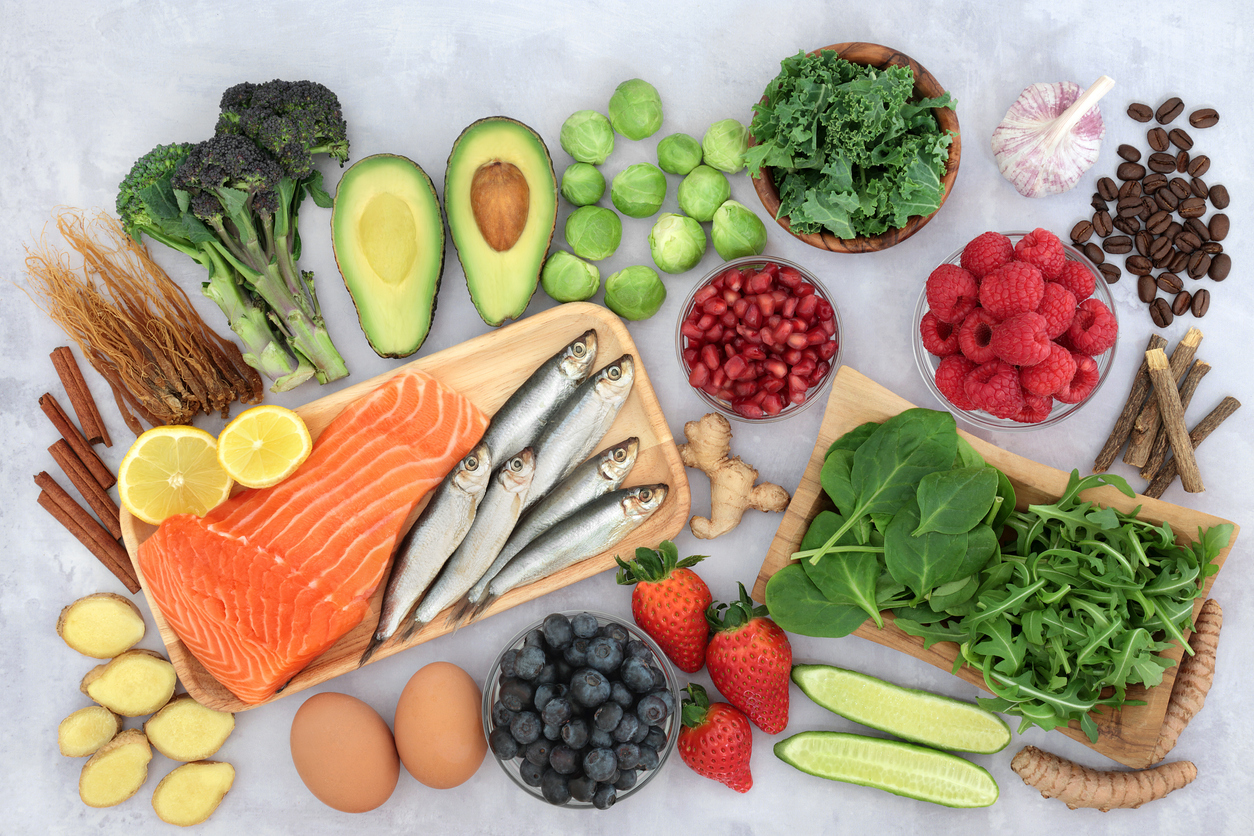Pure Resveratrol is a polyphenolic compound belonging to the polyphenols’ stilbenoids group.[i] The polyphenols’ stilbenoids group are a type of polyphenolic compounds that are characterised by their stilbene structure. The compounds in this group are naturally occurring and have been detected in more than 70 plant species, including red grapes, berries, peanuts and even red wine![ii]
Resveratrol was first recognised for its anti-cancer activity in 1997, and since then, it has paved the way for longevity supplements.[iii] Pure Resveratrol has garnered considerable scientific interest due to its potential health-promoting properties and studies demonstrate promising results that Pure Resveratrol increases DNA repair and cell renewal[iv]. Its bioactivity stems from its ability to modulate various molecular pathways implicated in cellular health and disease progression.[v]
History
1939:
Resveratrol was first identified in 1939 by a Japanese scientist, Michio Takaoka, who isolated it from the roots of the white hellebore plant (Veratrum grandiflorum)[vi]
1963:
In 1963, Resveratrol was found in the roots of Polygonum cuspidatum, a plant used in traditional Chinese and Japanese medicine. This discovery marked the beginning of scientific interest in this polyphenolic compound.[vii]
1990s:
Resveratrol gained widespread attention due to its presence in red wine. This was largely influenced by the “French Paradox,” a term coined in the late 1980s to describe the low incidence of coronary heart disease in French populations despite their high intake of dietary cholesterol and saturated fats. Researchers hypothesized that moderate consumption of red wine, which contains resveratrol, could be a contributing factor to this paradox.[viii]
1997:
The breakthrough for Resveratrol came in 1997 when a seminal study by Dr. John Pezzuto and his team at the University of Illinois at Chicago demonstrated its anti-cancer properties. The study showed potential in suppressing cancer metastasis in preclinical studies.[ix] This study was a pivotal moment that spurred extensive research into the potential health benefits of Resveratrol. Following this, research on Resveratrol expanded rapidly. Scientists explored its effects on various health conditions, including cardiovascular diseases, neurodegenerative disorders, and metabolic syndromes. Numerous in vitro (test tube) and in vivo (animal) studies suggested that Resveratrol could provide antioxidant, anti-inflammatory, and anti-aging benefits by modulating molecular pathways involved in cellular health and disease progression.[x]
2000s:
The early 2000s saw the commencement of human clinical trials to evaluate the efficacy and safety of Resveratrol. These studies aimed to determine the bioavailability, optimal dosages, and potential health benefits of Resveratrol supplements. Results have been mixed but generally supportive of its beneficial effects on cardiovascular health, glucose metabolism, and cognitive function.[xi]
Current and ongoing research:
Today, Resveratrol continues to be a subject of intense scientific interest. Scientific research has revealed promising results that indicate the significant role Resveratrol plays in extending lifespan, enhancing athletic performance, and preventing age-related diseases. Advances in biotechnology and pharmacology are also exploring ways to improve the bioavailability and potency of Resveratrol supplements.[xii]
Pure Resveratrol Benefits
Activation of sirtuins:
Pure Resveratrol is renowned for activating a family of proteins in living organisms called sirtuins, particularly SIRT1. Sirtuins are involved in regulating cellular processes, such as DNA repair, inflammation and mitochondrial function.[xiii]
Enhanced mitochondrial function:
Pure Resveratrol has been shown to enhance mitochondria function. Mitochondria are the powerhouse of cells, responsible for energy production.[xiv]
Antioxidant properties:
Pure Resveratrol acts as an antioxidant, helping to neutralize harmful free radicals that can damage cells and contribute to aging processes.[xv]
Anti-inflammatory effects:
Chronic inflammation is associated with various age-related diseases. Pure Resveratrol has demonstrated anti-inflammatory properties that may help reduce inflammation and its negative effects on health.[xvi]
Cardiovascular health:
Pure Resveratrol supports cardiovascular health by improving endothelial function, reducing blood pressure, and lowering LDL cholesterol levels. These effects contribute to a lower risk of heart disease.[xvii]
Neuroprotective effects:
Pure Resveratrol may protect against neurodegenerative diseases such as Alzheimer’s and Parkinson’s by promoting brain health and cognitive function. It has been shown to improve memory performance and hippocampal connectivity.[xviii]
Anti-cancer properties:
Pure Resveratrol has demonstrated anti-cancer properties by inhibiting the initiation, promotion, and progression of cancer. It affects multiple cellular pathways involved in tumour growth and metastasis.[xix]
References:
[i] Salehi, B, Mishra, A, Nigam, M, Sener, B, Kilic, M, Sharifi-Rad, M, Fokou, P, Martins, N & Sharifi-Rad, J 2018, ‘Resveratrol: A Double-Edged Sword in Health Benefits’, Biomedicines, vol. 6. no. 3, pp. 91.
[ii] Salehi, B, Mishra, A, Nigam, M, Sener, B, Kilic, M, Sharifi-Rad, M, Fokou, P, Martins, N & Sharifi-Rad, J 2018, ‘Resveratrol: A Double-Edged Sword in Health Benefits’, Biomedicines, vol. 6. no. 3, pp. 91.
[iii] Meng, X, Zhou, J, Zhao, C, Gan, R & Li, H 2020, ’Health Benefits and Molecular Mechanisms of Resveratrol: A Narrative Review’, Foods, vol. 9, no. 3.
[iv] Yuan, L, Zhang, Y, Xia, J, Liu, B, Zhang, Q, Liu, J, Lou, L, Peng, Z, Song, Z & Zhu, R 2014, ’Resveratrol induces cell cycle arrested via a p53-independent pathway in A549 cells’, Molecular Medicine Reports, vol. 11, no. 4, pp. 2459-2464.
[v] Salehi, B, Mishra, A, Nigam, M, Sener, B, Kilic, M, Sharifi-Rad, M, Fokou, P, Martins, N & Sharifi-Rad, J 2018, ‘Resveratrol: A Double-Edged Sword in Health Benefits’, Biomedicines, vol. 6. no. 3, pp. 91.
[vi] Pezzuot, J 2019, ’Resveratrol: Twenty Years of Growth, Development and Controversy’, Biomolecules & Therapeutics, vol. 1, no. 14.
[vii] Song, B, Wang, W, Tang, X, Goh, R, Thuya, W, Ho, P, Chen, L & Wang, L 2023, ’Inhibitory Potential of Resveratrol in Cancer Metastasis: From Biology to Therapy’, Cancers, pp. 2758.
[viii] Goldberg, D & Soleas, G 2003, ‘Wine, alcohol and the French Paradox’, Clinica Chimica Acta.
[vix] Song, B, Wang, W, Tang, X, Goh, R, Thuya, W, Ho, P, Chen, L & Wang, L 2023, ’Inhibitory Potential of Resveratrol in Cancer Metastasis: From Biology to Therapy’, Cancers, pp. 2758.
[x] Salehi, B, Mishra, A, Nigam, M, Sener, B, Kilic, M, Sharifi-Rad, M, Fokou, P, Martins, N & Sharifi-Rad, J 2018, ‘Resveratrol: A Double-Edged Sword in Health Benefits’, Biomedicines, vol. 6. no. 3, pp. 91.
[xi] Timmers, S, Konings, E, Bilet, L, Houtkooper, R, Weijer, T, Goossens, G, Hoeks, J, Krieken, S, Ryu, D, Kersten, S, Moonen-Kornips, E, Hesselink, M, Kunz, I, Schrauwen-Hingerling, V, Blaak, E, Auwerx, J & Schrauwen, P 2011, ‘Calorie restriction-like effects of 30 days of resveratrol supplementation on energy metabolism and metabolic profile in obese humans’, Cell Metabolism, vol. 14, no. 5, pp. 612-622.
[xii] Sinclair, D & LaPlante, D 2019, Lifespan: Why We Age – and Why We Don’t Have To, Atria Books, NY, US.
[xiii] Sarubbo, F, Esteban, S, Miralles, A & Moranta, D 2018, ’Effects of Resveratrol and other Polyphenols on Sirt1: Relevance to Brain Function During Aging’, Curr Neuropharmacol, vol. 16, no. 2, pp. 126-136.
[xiv] Sarubbo, F, Esteban, S, Miralles, A & Moranta, D 2018, ’Effects of Resveratrol and other Polyphenols on Sirt1: Relevance to Brain Function During Aging’, Curr Neuropharmacol, vol. 16, no. 2, pp. 126-136.
[xv] Salehi, B, Mishra, A, Nigam, M, Sener, B, Kilic, M, Sharifi-Rad, M, Fokou, P, Martins, N & Sharifi-Rad, J 2018, ‘Resveratrol: A Double-Edged Sword in Health Benefits’, Biomedicines, vol. 6. no. 3, pp. 91.
[xvi] Meng, X, Zhou, J, Zhao, C, Gan, R & Li, H 2020, ’Health Benefits and Molecular Mechanisms of Resveratrol: A Narrative Review’, Foods, vol. 9, no. 3.
[xvii] Timmers, S, Konings, E, Bilet, L, Houtkooper, R, Weijer, T, Goossens, G, Hoeks, J, Krieken, S, Ryu, D, Kersten, S, Moonen-Kornips, E, Hesselink, M, Kunz, I, Schrauwen-Hingerling, V, Blaak, E, Auwerx, J & Schrauwen, P 2011, ‘Calorie restriction-like effects of 30 days of resveratrol supplementation on energy metabolism and metabolic profile in obese humans’, Cell Metabolism, vol. 14, no. 5, pp. 612-622.
[xviii] Witte, A, Kerti, L, Margulies, D & Flöel, A 2014, ’Effects of resveratrol on memory performance, hippocampal functional connectivity, and glucose metabolism in healthy older adults’, The Journal of Neuroscience, vol. 34, no. 23, pp. 7862-7870.
[xix] Jang, M, Cai, L, Udeani, G, Slowing, K, Thomas, C, Beecher, C & Pezzuto, J 1997, ’Cancer chemopreventive activity of resveratrol, a natural product derived from grapes’, Science, vol. 275, no. 5297, pp. 218-220.
